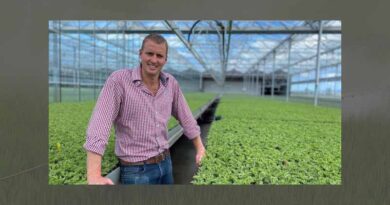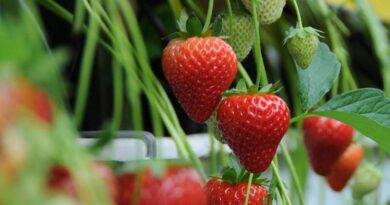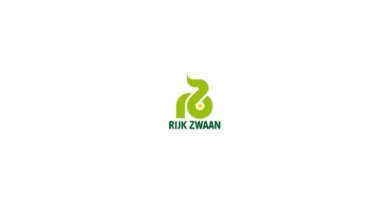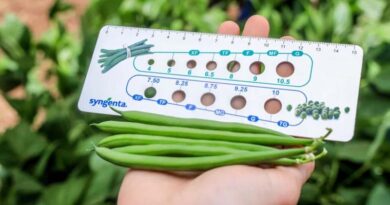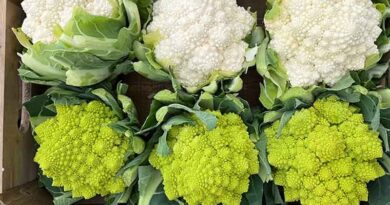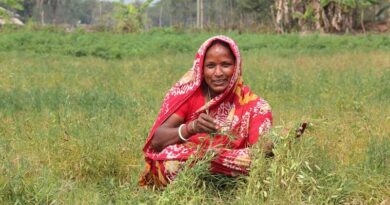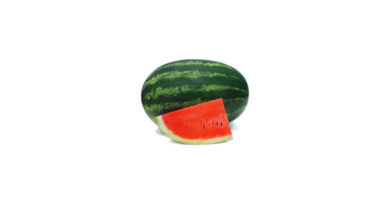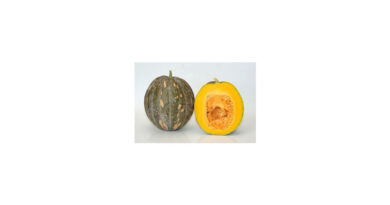Crafting Watermelons that Maintain High Yield Potential and Meet Consumer Demand
01 December 2023, US: Watermelon is popular around the world. A fresh snack on hot days and a healthy dessert for large groups, it’s a fruit many enjoy. How it’s enjoyed might be similar, but the varieties grown around the world differ because they are catered to not only unique growing conditions, but also consumer preferences.
In a constantly evolving landscape where yield, disease resistance, and quality remain top priorities, we focus on developing seed selections that also align with eaters’ preferences.
“We started our breeding program with a focus on large, seeded watermelon. The first seedless watermelons were introduced in the 1980s,” said Erin Doughtie, Regional Portfolio Manager for Watermelon in the Americas. “Today, in the U.S., they’re what consumers demand.”
Demand for seedless watermelon is growing outside of the U.S., too, and today we’re also seeing demand for smaller fruit sizes in countries around the world.
Understanding the impact of consumer preference
At the end of the day, consumers decide what type of watermelon should be produced. If they don’t buy it from the grocery store, that retailer doesn’t buy it from the grower. Keeping a keen eye on consumption demand helps Syngenta keep grower partners on the leading edge of consumer trends.
Mini seedless watermelons by Syngenta Vegetable Seeds are one of many examples of how we create innovative seeds to meet changing lifestyles and consumer trends. As household size has decreased, demand pivoted towards a smaller fruit intended for an individual or sharing with one other person. With this newer option, consumers achieve lower food waste and still get to enjoy the fresh taste of watermelon.
Our experts recognized the trend, bringing mini seedless watermelons to market more than 20 years ago. Syngenta is also enabling farmers around the world in traditionally seeded watermelon markets as the trend toward seedless becomes more popular. For example, seedless varieties are available in several Asian, South American, and European markets as the trend takes hold.
Extensive research and comprehensive quality control
Our experts actively conduct extensive research and maintain comprehensive quality control through the Syngenta trialing program. This collaboration with growers helps us to evaluate products on their farms over multiple years. Our main agronomic objectives are to optimize yield, enhance disease protection and provide the highest quality products possible – all while understanding and preparing for upcoming consumer trends.
Because of this Rebecca Wente-Naylor, Product Development Specialist Senior at Syngenta Vegetable Seeds said looking at the internal quality of the fruit is essential.
“Our program involves cutting the fruit open, tasting, assessing the brix (sugar content), evaluating the firmness, presence or absence of hollow heart, among other aspects,” said Wente-Naylor. “Any factors that are important to our growers and anywhere along the value food chain is where we are dedicated.”
Most grocery store watermelons average 11-12 brix, a minimum standard we check for. In addition, these trials can help our breeding teams evaluate placement for each variety to maximize yield in the field and how it can be sold best in stores: whole or processed.
Also Read: UPL Limited announces incorporation of Advanta Seeds Ltd in South Africa
(For Latest Agriculture News & Updates, follow Krishak Jagat on Google News)




